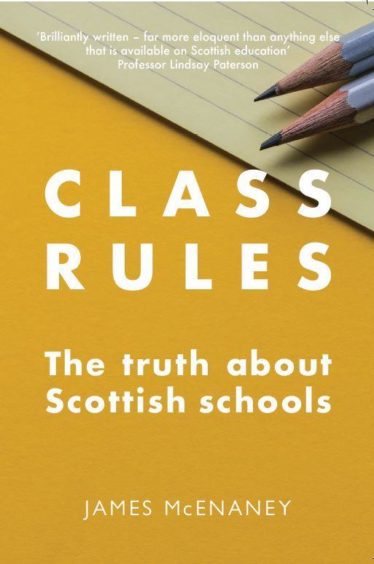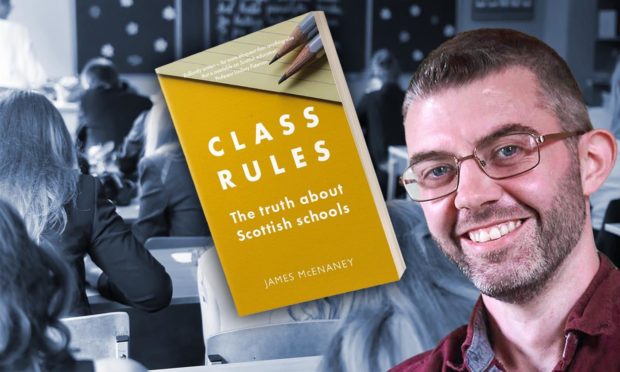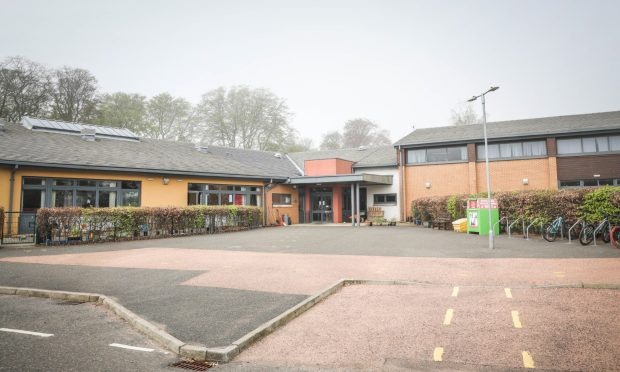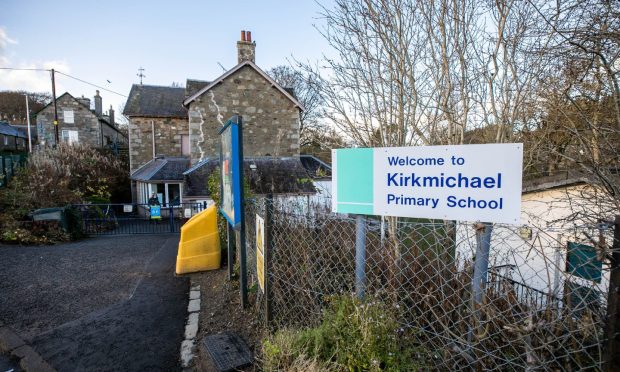Significantly reduced class sizes and raising the school starting age are key to improving Scotland’s education, according to the author of a new book exposing failings in the system.
Former teacher James McEnaney says classes of no more than 20 would allow teachers to spend more time with each pupil, and a kindergarten stage before school could bring “massive” social and educational benefits.
The journalist and lecturer, who is a prominent commentator on Scottish education, claims that First Minister Nicola Sturgeon has failed in her 2015 pledge to close the poverty-related attainment gap which was magnified by the 2020 SQA results scandal.
And in Class Rules: The Truth About Schools he also also shines a light on the impact of Covid on education and how the Curriculum for Excellence may have been “fatally undermined”.
However, he also argues that the pandemic has acted as a catalyst for change and sets out how Scottish education could be improved.
Schools, he says, can never undo all the effects of inequality but among his suggestions for maximising their impact are:
- Class sizes of no more than 20 pupils
- Reduced class time for teachers to allow more planning, reviewing, collaboration, etc.
- Expansion in outdoor and residential learning
- A kindergarten stage for ages three to seven and later school start age
- A reform of senior phase assessment which could involve removing exams in S4 and S5
- Better use of technology, including recorded teaching materials.
Government guidelines state class sizes in Scottish primary schools should be no more than 25 for P1 and composite, 30 for P2 and P3 and 33 for P4 to P7.
However, many children are taught in classes of 30 or more which makes it difficult for teachers to work to the best of their ability, Mr McEnaney said.
“If you have teachers who are not in a position to do their jobs properly because they don’t have enough time to plan things, review and think about your child and what your child needs in the next, say, two or three weeks, you can’t really make any progress.”
Reducing class sizes would take time and money, he admitted but added: “What is costing us to not do it?
“What’s the societal cost of all those kids in deprived areas who don’t get the exam passes and go on to careers that they are perfectly capable of because we operate in a system that disadvantages them?
A nation’s weans are worth this kind of investment.”
James McEnaney
“Is it going to cost more to employ lots more teachers? Yes, it is. Is it going to cost more to reduce all class sizes everywhere to a maximum of 20? Yes, because we would probably have to build more schools.
“The changes that are needed aren’t things that can happen in say two, three or four years.”
But, he said: “A nation’s weans are worth this kind of investment.”
Existing early years provision, he said, was treated with little respect despite recognition of the importance of that stage.
A universal kindergarten stage paired with an increase in the school starting age, he claimed, should be paid for through general taxation and not fees.
This, he said, could be coupled with a reform of school stages further along the line, such as S4 to S6 being akin to college.

He said: “The advantages you could get from a shift to a kindergarten stage in maximising the respect and the value and investment in early years, the educational and social advantages for young people and then the catalyst they provide for broader, more unified changes, the potential for that is massive.”
While devastating, the pandemic, Mr McEnaney says in his book, has provided an opportunity to honestly assess the education system and “build back better” so we don’t continue to “fail thousands and thousands of children every year”.
Class Rules: The Truth About Scottish Schools is published by Luath Press and available for pre-order.











